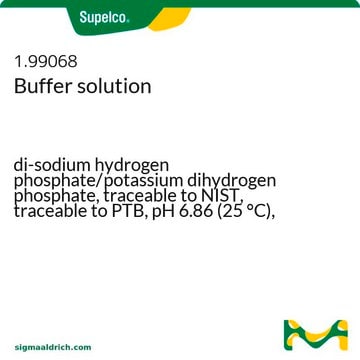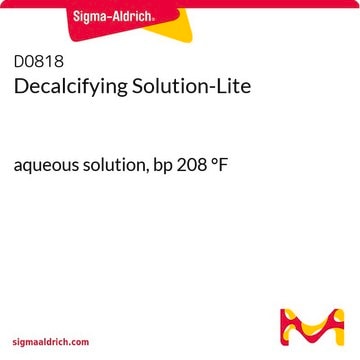The product MAK219 is a simple yet sensitive assay that can detect normal and abnormal concentrations of Tyr in biological fluids. It has been tested in serum, plasma, urine, and other body fluids, but not in other samples. Notably, it does not differentiate between free and bound tyrosine.
MAK219
Tyrosine Colorimetric Assay Kit
Sufficient for 100 Colorimetric tests
Synonym(s):
Tyrosine Detection Colorimetric Kit
About This Item
Recommended Products
detection method
colorimetric
relevant disease(s)
neurological disorders
storage temp.
−20°C
General description
Suitability
Principle
Kit Components Only
- Tyr Assay Buffer
- Tyr Enzyme Mix
- Tyr Standard
signalword
Danger
hcodes
Hazard Classifications
Eye Dam. 1 - Resp. Sens. 1
Storage Class
10 - Combustible liquids
wgk_germany
WGK 3
Choose from one of the most recent versions:
Certificates of Analysis (COA)
Don't see the Right Version?
If you require a particular version, you can look up a specific certificate by the Lot or Batch number.
Already Own This Product?
Find documentation for the products that you have recently purchased in the Document Library.
-
Can the assay detect bound tyrosine, such as tyrosine in a protein, or is the assay only capable of detecting free, unbound tyrosine in solution?
1 answer-
Helpful?
-
-
How cell culture samples should be prepared for the product MAK219?
1 answer-
According to the vendor, the preparation of cell culture samples for the product MAK219 has not been specifically tested, and thus, there is no corresponding protocol available. However, a general protocol for the lysis of tissue and cells for activity assays is provided, which can be adapted for the experiment. The protocol includes specific steps for the lysis of cultured cells, such as resuspending the cell pellets in the desired lysis buffer, sonication, centrifugation, and harvesting the supernatant for the assay. Additionally, information is provided on the suggested lysis buffer and an alternative lysis solution using PBS + 0.5% NP-40. It is advised to check the compatibility of the components to ensure they will not interfere with the assay.
Helpful?
-
Active Filters
Our team of scientists has experience in all areas of research including Life Science, Material Science, Chemical Synthesis, Chromatography, Analytical and many others.
Contact Technical Service







